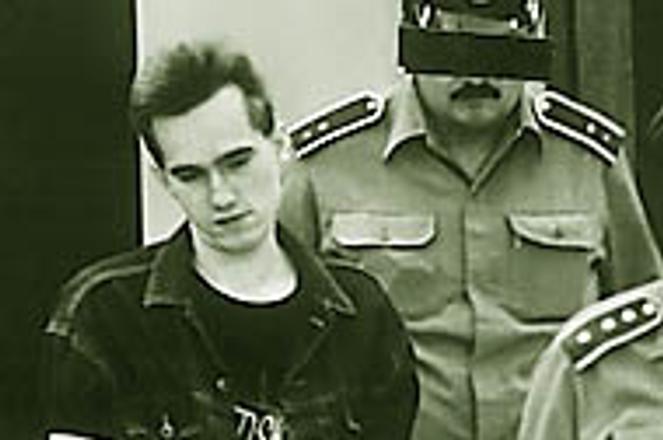The Interior Ministry insists that police will not be at risk wearing name tags; officers think otherwise.photo: Ján Kuchta
German businessman Wolfgang B. was driving in Bratislava last December when two Slovak policemen stopped him for speeding. Unaware that the maximum 'street fine' police are entitled to issue was 500 Slovak crowns ($10), he says he handed over 5,000 crowns to the two policemen.
"He asked for a receipt and the police gave him five different ones," said Peter S., a Slovak colleague of Wolfgang B. "He then forgot about the whole thing. Two months later, I found the receipts in his car and saw that they were each marked for 100 crowns, totalling 500 crowns. The rest [4,500 crowns] apparently just went into the policemen's pockets."
Slovak and foreign drivers say that paying bribes to policemen is a common practice here in Slovakia. Often, they say, police stand at the side of the road, stop unsuspecting cars, and give drivers the option of paying a heavier fine for which they would issue a receipt, or paying a smaller fine without a receipt.
Stories like that of Wolfgang B. have stirred the Interior Ministry into action. To combat police corruption, the ministry decided that as of May 1, all city, traffic, border and customs police had to wear name-tags on their uniforms.
The ministry said that in allowing citizens to identify police who demand bribes, it was giving the public more power to control police conduct. But the police are deeply unhappy with the decision (see story this page), while anti-corruption experts say that the move is not an effective way of fighting larceny.
"Name-tags won't eliminate corruption," said Daniela Zemanovičová of corruption watch dog Transparency International Slovakia. "Effective measures should be sought elsewhere. Rather than identifying individual police, the ministry should force investigators to act when the public files a complaint, and not 'forget' about a case once an investigation has been started, as they often do now."
Police today wear five-digit identification numbers on their jackets. Interior Ministry spokesman Jozef Sitár said that while 18 police officers had been fired last year for corruption, the real number of police who had been guilty of corruption was "far higher". Identifying police by number, Sitár added, was clearly proving an inefficient approach to fighting corruption in the ranks.
"By making them wear name-tags, police officers will no longer be anonymous," he said. "We think that by having their names on their uniforms, the 'black sheep' police [who accept bribes] will be discouraged from many corrupt practices. They'll bear in mind that people will report their names, because name tags are a much more direct form of identification than a number. The numbers were too confusing for people, who easily mixed them up or didn't see them in the first place."
Sitár added that police were not the only culprits in cases of corruption. "We have to realise that the blame also falls on those who give bribes to police. A corrupt police officer cannot be fired if nobody reports him."
But one professional driver in Bratislava said that the name-tags would do little to curb bribery, largely because people saw paying a bribe as easier - and cheaper - than paying official fines. Furthermore, he continued, once a bribe is paid, the civilian cannot report the bribe to the police because he himself will face punishment.
"Paying a bribe will always remain a little secret between the driver and the police," said the Bratislava taxi-driver, who spoke on the condition of anonymity. "If you pay directly into the police officer's pocket, it costs less than if you pay a 'proper fine' with a receipt.
"Some [police] will tell you straight off that an agreement can be reached with them," he added. "They'll tell you, 'Normally, you would have to pay 500 crowns, but if you agree to pay without a receipt, it will only be 300.' Most drivers will agree because it's a bargain."
Despite the skepticism of the public and corruption experts, the Interior Ministry's Sitár stood by the ministry's decision, saying that time would prove the effectiveness of the name tags.
"Let's wait for the 2001 statistics on corruption," he said. "Then we'll see the results."

